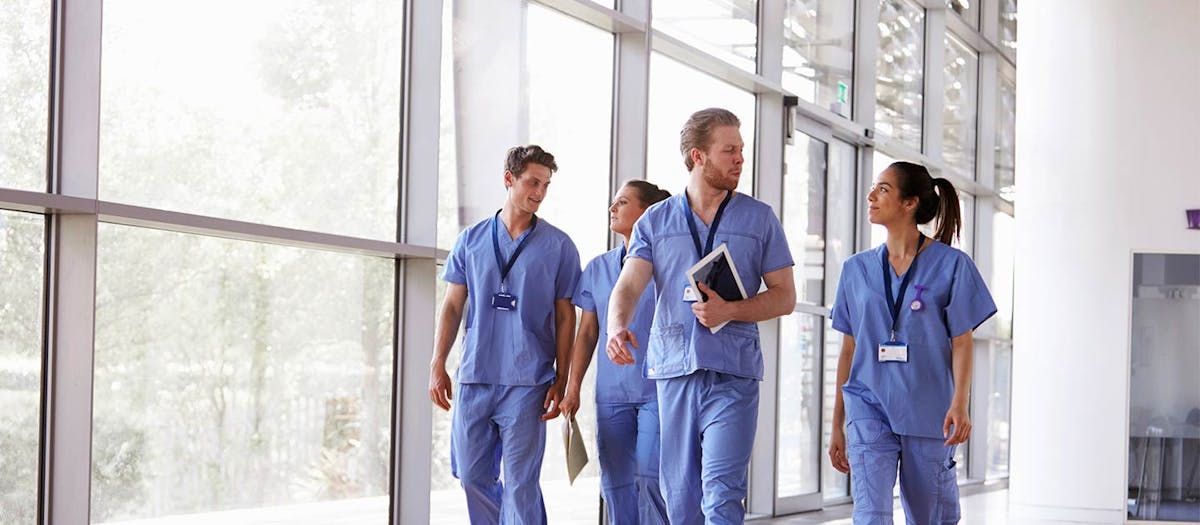16 Jan 2024
How to Become a Plastic Surgeon Receptionist
Working as a plastic surgeon receptionist can be incredibly rewarding work.
From supporting patients throughout every stage of their journey to organising a surgery's schedule, a lot of trust and responsibility is placed on the receptionist at a plastic surgeon's office.
You are often the first face a patient sees, and setting the tone of the surgery office and making them feel welcome and relaxed falls to you.

What Does a Plastic Surgeon Receptionist Do?
Being a receptionist for a plastic surgeon’s office involves similar tasks and responsibilities to any medical receptionist, only you’ll be working for a plastic surgeon. Some of these key tasks include:
Welcoming patients and visitors and answering any enquiries via phone, email and social media
Scheduling appointments
Assisting patients with completing necessary forms and documentation, as well as ensuring that all information acquired is accurate and current
Scheduling external appointments for any clients that require hospital admission and tests
Coordinating patient schedules between surgeons, nurses and anaesthetists
Processing bill procedures and payments, including Medicare
Faxing, scanning, filing, and emailing.
However, some of the usual tasks may require a different approach in a plastic surgeon’s office. For example:
Welcoming patients and visitors – patients in a cosmetic surgeon’s office may be expecting a higher level of attentiveness and luxury than those in a standard GP or public hospital setting – more often than not, they’re paying out of pocket for this service, so it needs to be made worth their while. You may be responsible for serving refreshments and being at the ready to ensure patients’ every need is met.
Comforting distressed patients – in any medical workplace, there’s a chance you may be dealing with patients or loved ones experiencing emotionally challenging situations, whether it’s emergencies or difficult news. A cosmetic surgeon’s office is no different. The types of distress you see may involve patients who are recovering from an incident and require reconstructive surgery or patients who are taking steps to improve their self-confidence. Whatever their circumstance, your job beyond administrative tasks is to provide a nurturing, calm and unjudging environment for patients.
Discussing patients’ options – you may need to learn the cosmetic surgery lingo and know all about the different types of treatment options available for patients. As the first contact for the business, it’s important that you’re knowledgeable or at least able to direct potential patients to the right information.

What Makes a Good Plastic Surgeon Receptionist?
A great cosmetic receptionist has all the amazing attributes of a medical receptionist, just with a slightly different medical knowledge background. Some of the qualities that employers and patients look for include:
Compassionate and caring
Compassion is a highly valued trait in this environment, as people seeking cosmetic procedures are likely to do so because they’re unhappy with certain aspects of how they look. Not judging patients, having a warm demeanour and being there to ease their concerns will help to create a positive experience.
Professional and discrete
This is crucial in this type of role, as the issues patients are dealing with may feel particularly sensitive. Every day you’ll be dealing with confidential information, and it’s up to you to ensure this information stays in the office.
Thoughtful
Adding extra touches to your interactions with patients will make them feel super welcomed and cared for. Going the extra mile by making sure they have enough water and are comfortable at all times will definitely be remembered.

How to Become a Plastic Surgeon Receptionist?
Do you think working as a plastic surgeon receptionist is the path for you? While there’s no rule saying you need to get qualifications to become a receptionist, getting an education first will put you ahead of other applicants and give you the knowledge to thrive from the start.
Here are some of the qualifications you might like to consider to land your first role as a cosmetic receptionist.
Certificate III in Health Administration
The HLT37315 Certificate III in Health Administration is a course more directly focused on the medical industry, giving you the skills to provide administrative support in a range of health service settings, including medical practices, hospitals, and community health clinics.
You’ll learn:
How to maintain client and financial records
How to manage information and resources
How you can contribute to innovation in the workplace
Medical terminology
Methods of implementing infection control policies
Work health and safety processes.
This health administration certificate course will also provide a solid foundation upon which to progress into a HLT47315 Certificate IV in Health Administration or Diploma of Practice Management.
Diploma of Practice Management
The HLT57715 Diploma of Practice Management is an advanced qualification recommended for those who’ve already gained some experience in a medical administration setting. With a Diploma qualification, you can push your career even further and land roles as a practice manager in healthcare settings across Australia.
This course will teach you how to:
Direct junior staff
Achieve the business goals of your practice
Organise administrative systems and practice personnel
Manage risk and implement infection control policies
Ensure work health and safety compliance
Coordinate hiring, performance management and job training
Deliver a high level of service to patients
What Can a Medical Receptionist Earn?
Plastic surgery receptionists are generally filed under ‘medical receptionists’ when it comes to calculating the average pay rate.
Medical receptionists make a great salary for their qualification level, averaging anywhere between $55,000 to $65,000 per year, according to Seek. This salary can set you up to front any medical practice across Australia, be it specialising in plastic surgery or more general practice.
Does this sound like a great job for you? Call us at 1300 616 197 or Enquire Now speak to one of our Careers Advisors for more information today!
Related Articles

How to become a Leader in Healthcare
Want a highly rewarding career with great prospects? Learn the ins and outs of Healthcare Management and some top tips to get ahead.

Seven reasons why you’ll love a career in Health Services
There are so many reasons why people choose to pursue a career in healthcare. Some have a passion for helping others, others love working with their hands. Here are just a few reasons why you could thrive in a Health Services career.

Proud member of

© Foundation Education | RTO Number 22557
